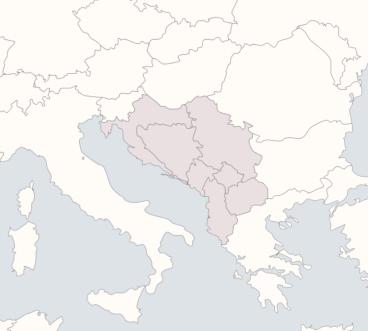North Macedonia

Helsinki Commission Advances Human Rights, Demands f...
Oct 19, 2023By Shannon Simrell, Senior Policy Advisor Between October 2-13, 11 Helsinki Commission staff joined approximately 1,400 representatives of OSCE participating States (pS) and civil society representatives in Warsaw, Poland in […]

North Macedonia’s Leadership of the OSCE in a ...
Feb 28, 2023North Macedonia has taken up leadership of the world’s largest regional security organization—the Organization for Security and Cooperation in Europe (OSCE)—a year into Putin’s brutal invasion of Ukraine. Much of […]
HEARING: NORTH MACEDONIA’S LEADERSHIP OF THE OSCE IN...
Feb 24, 2023Tuesday, February 28, 2023 1:00 p.m. to 2:00 p.m. Streaming: https://www.youtube.com/watch?v=xNgAOyC9f5g North Macedonia has taken up leadership of the world’s largest regional security organization—the Organization for Security and Cooperation in Europe […]

OSCE’s 2022 Ministerial Council in Lodz: Russia Isol...
Dec 09, 2022By Janice Helwig, Senior Policy Advisor, Demitra Pappas, Senior Advisor Department of State, Shannon Simrell, Representative of the Helsinki Commission to the U.S. Mission to OSCE Foreign Ministers and senior […]
NATO Refocused, Europe Reinforced
Aug 10, 2022By Jessika Nebrat, Max Kampelman Fellow Following the escalation of Russia’s war against Ukraine, the North Atlantic Treaty Organization (NATO) is playing a role it has not filled in years. Forced to […]

Cardin, Shaheen, Wicker Introduce New Bipartisan Bil...
Aug 04, 2022WASHINGTON – Helsinki Commission Chairman Ben Cardin (MD) with Jeanne Shaheen (D-N.H.), Chair of the Senate Foreign Relations Subcommittee on Europe and Regional Security Cooperation and member of the Helsinki […]
Sweden’s Leadership of the OSCE
Jun 11, 2021In 2021, Sweden chairs the world’s largest regional security organization—the Organization for Security and Cooperation in Europe (OSCE)—which comprises 57 participating States stretching from North America, across Europe, and to […]
COVID-19 Vaccination Rollouts Expose Underlying Ineq...
Jun 07, 2021By Michelle Ngirbabul, Max Kampelman Fellow, and Shannon Simrell, Representative of the Helsinki Commission to the U.S. Mission to the OSCE More than one year into the COVID-19 pandemic, over […]
Swedish Foreign Minister Ann Linde to Appear at Hels...
Jun 03, 2021WASHINGTON—The Commission on Security and Cooperation in Europe, also known as the Helsinki Commission, today announced the following online hearing: SWEDEN’S LEADERSHIP OF THE OSCE Priorities for 2021 Friday, June […]

Helsinki Commission Commemorates 45 Years of Advanci...
Jun 03, 2021WASHINGTON—To commemorate the 45th anniversary of the Commission on Security and Cooperation in Europe, also known as the U.S. Helsinki Commission, on June 3, Chairman Sen. Ben Cardin (MD) and […]
OSCE Ministerial Council Appoints Top Leaders, Adopt...
Dec 21, 2020By Shannon Simrell, Representative of the Helsinki Commission to the U.S. Mission to the OSCE Foreign ministers of the 57 OSCE participating States convened on December 3 – 4, 2020, […]

Albanian Prime Minister Edi Rama to Appear at Helsin...
Sep 09, 2020WASHINGTON—The Commission on Security and Cooperation in Europe, also known as the Helsinki Commission, today announced the following online hearing: ALBANIA’S CHAIRMANSHIP OF THE OSCE Responding to the Multiple Challenges […]
